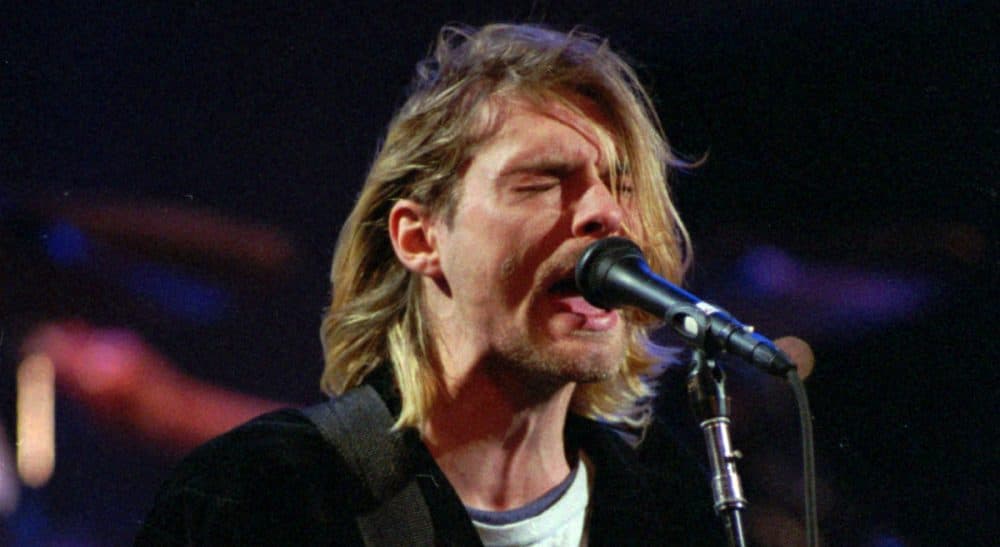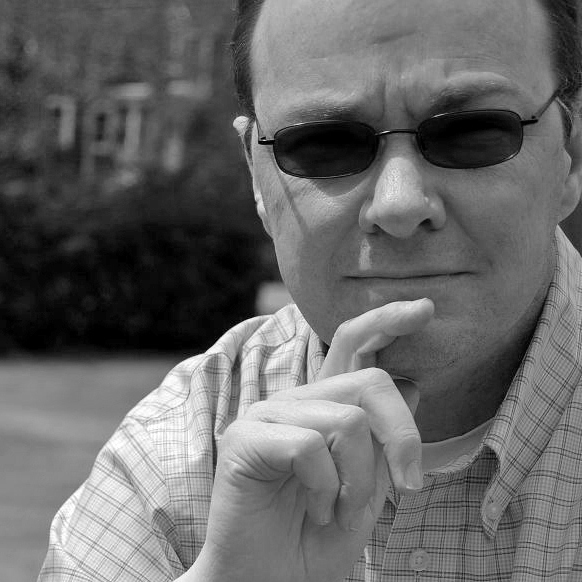Advertisement
20 Years Later, Kurt Cobain’s Legacy Still Does Not Fade Away

Listening to Nirvana’s breakthrough album, “Nevermind,” for the first time was a lot like falling in love — emphasis on the world “falling.” It felt like a step over the edge, the thrills just kept coming and the only thing you knew for sure was you didn’t want it to end. Kurt Cobain, the band’s main songwriter, summed things up more succinctly when he told author Luke Lewis the effect he was going for on that second album was, “The Knack and the Bay City Rollers getting molested by Black Flag and Black Sabbath.”
Call it what you want, it was a sound the world seemed to be waiting for.
It was 1991, the Gulf War was just under way, the Soviet Union ended, Magic Johnson tested HIV positive, Rodney King was beaten and Charles and Di called it quits. Rock was doing OK, with U2, the Chili Peppers, Guns N’ Roses, Metallica and Pearl Jam blanketing the airways. On the pop charts, MC Hammer, Color Me Badd, Michael Bolton and Paula Abdul were chasing after Michael Jackson’s “Dangerous” album. Anyone with ears knew “Nevermind” was a game changer. Unfortunately, the band would last only about half as long as the Beatles, folding after its resident genius and creative spirit took his own life.
They’ll blast Nirvana’s music and wonder how something this mysterious, dark and unhinged can at the same time be so beautiful and make them feel so utterly alive.
Cobain was found 20 years ago this week in a room on the top floor of his Seattle home, dead from a self-inflicted gunshot wound, a snippet of lyric from a famous Neil Young song adorning the bottom of his suicide note. He was 27. Over the ensuing two decades, he has done anything but fade away. In fact, for the year 2006, Nirvana, passed Elvis in posthumous record sales, and these days Cobain’s been granted the kind of rarified immortality usually reserved for 1960s icons. On April 10, the band will be inducted into the Rock and Roll Hall of Fame. Meanwhile, Nirvana's record sales long ago topped 25 million albums.
However, this only tells part of the story. Cobain was more than just another chart-topper. He was all rock was meant to be, the promise almost kept. That he burned out young seems, sadly, almost fitting.
Punk (and its flannel-bedecked stepchild, grunge) is about sex and death. The good stuff, anyway. That duality is the music’s raison d'être, and the songs of Nirvana combined the elements of dark and light better than any band I know. The imagistic lyrics forged from desperation and disappointment in the world, harnessed to the maelstrom of the Grohl-Novoselic rhythm section and sweetened with some of the greatest melodies in rock history was a potent mix. The result was music that exploded convention and dared to challenge our notions of what rock could be. As Greil Marcus wrote in Rolling Stone five years after Cobain’s death: “There is a great, whole drama taking place in Nirvana’s music…”
Cobain’s genius was the alchemy he produced from that sui generis melodic gift of his combined with the ugly stuff of life he knew all too well. More than just pure pop for the Lithium crowd, the sound was cathartic for anyone who was ever swept up in its energy or sang along to one of those infectious choruses.
He knew the bitch-goddess of fame might devour him in the end, and so he danced with her carefully.
Additionally, Cobain is especially missed in this Era of the Self, where promotion and marketing have assumed an exaggerated role in music and society. He knew the bitch-goddess of fame might devour him in the end, and so he danced with her carefully. He rarely if ever gave the people what they wanted: Nirvana’s live performances were low on flash and high on visceral power, and when he agreed to play nice and unplug for MTV, the setlist skipped most of the big hits. Meanwhile, the band’s last studio album, “In Utero,” was initially deemed too raw for public consumption and was subsequently remixed. Still, it was the toughest thing heard on commercial radio that year. That’s rock ’n’ roll attitude to spare, and proof that Cobain stayed true to his muse above all else.
In the end, when the needle hits the groove, it’s all about melody, energy, passion and a belief that all this means something. Even if that something is, in the end, given away, dissipated, lost or wasted. Nirvana’s music was raw and unfiltered and it soared and it was real. Looking back, we should have known there was no way it could last. The consolation is we have those records on the shelf. Fading away isn’t an option now.
And so, as they have for the past 19 years, on April 5 music fans will gather in Viretta Park, next door to the Lake Boulevard Street home where Cobain’s body was found. They’ll blast Nirvana’s music and wonder how something this mysterious, dark and unhinged can at the same time be so beautiful and make them feel so utterly alive.
My my, hey hey, indeed.
Related:
